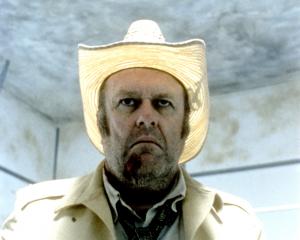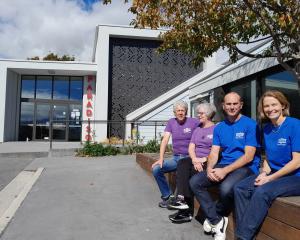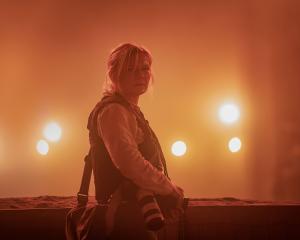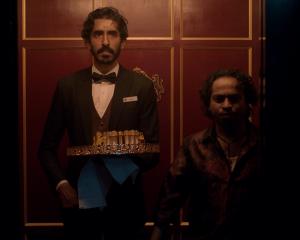
Creating one of the world's largest ocean sanctuaries around the Kermadec Islands is the "right thing to do", Hollywood director James Cameron says.
Legislation to establish the sanctuary has been put on ice after a fierce backlash over a lack of consultation on the removal of Maori fishing rights in the area.
Cameron, director of films including Titanic and Avatar, has previously lobbied for the Kermadec Sanctuary along with environmental groups such as the World Wildlife Fund, Forest & Bird and the Pew Charitable Trust.
Speaking to the Herald yesterday after watching his friend and one-time next door neighbour Dame Patsy Reddy be sworn-in as Governor-General at Parliament, he said he hoped the sanctuary would progress.
"[It's] something that's the right thing to do...it is important for New Zealand to own its legacy, and [be] clean, green, pure - which is the way that the world sees this place. I think it's good for the tourism industry," said Cameron, a keen environmentalist who recently featured in Tourism NZ's 100% Pure New Zealand campaign.
Cameron said five or six years ago he met Prime Minister John Key and at the request of the Pew Charitable Trusts and gave him a briefing paper on the possibility of a marine protected area around the Kermadec Islands, north-east of New Zealand.
"We had a bit of a discussion about it...I was a big proponent of it. But I haven't been involved in it since, so I'm not fully briefed."
Asked about the controversy over Maori rights, Cameron said he couldn't comment as he was not up-to-date on the situation.
"I'm sure it is a complex issue. But you asked me if I am in favour of it? Yes. I'm in favour of a lot of marine protected areas because I think we've got to hold on to what we are losing, and we are losing it fast."
Key announced the Kermadec sanctuary at the United Nations last September.
The project will cover an area around the Kermadec Islands that is twice the size of New Zealand's land mass and 50 times the size of the country's largest national park.
Two fisheries settlements in 1989 and 1992 granted Maori control over one-third of New Zealand's commercial fisheries.
However, the Government has reasoned no compensation need be paid because there is little viable commercial fishing in the area, and it has a right to provide for no-take marine reserves.
Talks between Te Ohu Kaimoana (the Maori Fisheries Commission) and the Government collapsed this month and TOKM said it intended to progress with legal action to try to stop the removal of Maori fishing rights by the legislation setting up the sanctuary.
There have been talks between the Maori Party and the Government to try to salvage a solution to the impasse over the sanctuary.
Key has said he will put the sanctuary on hold indefinitely if he cannot get agreement from the Maori Party.
On Monday, he said he wasn't aware of further talks this week: "I don't think there is urgency. We want to resolve it...but in the end we need to find a way through...I don't think putting artificial pressure on the process will help".
In June, Labour's fisheries spokesman Rino Tirikatene singled out the Pew Charitable Trusts for criticism during a select committee hearing, saying many Maori considered it disgraceful that a "foreign-funded NGO" could dictate and lobby to override Maori rights.
Environment Minister Nick Smith has said he had conversations about the Kermadecs with American Secretary of State John Kerry and also officials from Australia, Britain and Chile, but the decision to create the sanctuary was not due to international pressure.












